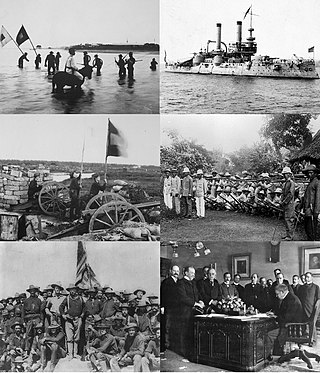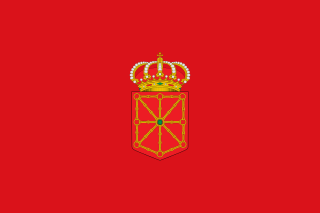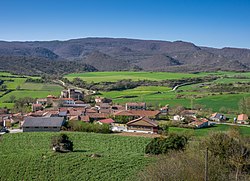
Colombia, officially the Republic of Colombia, is a country primarily located in South America with insular regions in North America. The Colombian mainland is bordered by the Caribbean Sea to the north, Venezuela to the east and northeast, Brazil to the southeast, Ecuador and Peru to the south and southwest, the Pacific Ocean to the west, and Panama to the northwest. Colombia is divided into 32 departments. The Capital District of Bogotá is also the country's largest city hosting the main financial and cultural hub. Other major urban areas include Medellín, Cali, Barranquilla, Cartagena, Santa Marta, Cúcuta, Ibagué, Villavicencio and Bucaramanga. It covers an area of 1,141,748 square kilometers and has a population of around 52 million. Its rich cultural heritage—including language, religion, cuisine, and art—reflects its history as a colony, fusing cultural elements brought by immigration from Europe and the Middle East, with those brought by the African diaspora, as well as with those of the various Indigenous civilizations that predate colonization. Spanish is the official language, although Creole, English and 64 other languages are recognized regionally.

Puerto Rico, officially the Commonwealth of Puerto Rico, is a self-governing Caribbean archipelago and island organized as an unincorporated territory of the United States under the designation of commonwealth. Located about 1,000 miles (1,600 km) southeast of Miami, Florida, between the Dominican Republic in the Greater Antilles and the U.S. Virgin Islands in the Lesser Antilles, it consists of the eponymous main island and numerous smaller islands, including Vieques, Culebra, and Mona. With approximately 3.2 million residents, it is divided into 78 municipalities, of which the most populous is the capital municipality of San Juan, followed by those within the San Juan metropolitan area. Spanish and English are the official languages of the government, though Spanish predominates.

Spain, formally the Kingdom of Spain, is a country in southwestern Europe with territories in North Africa. It is the largest country in Southern Europe and the fourth-most populous European Union member state. Spanning across the majority of the Iberian Peninsula, its territory also includes the Canary Islands, in the Atlantic Ocean, the Balearic Islands, in the Mediterranean Sea, and the autonomous cities of Ceuta and Melilla, in Africa. Peninsular Spain is bordered to the north by France, Andorra, and the Bay of Biscay; to the east and south by the Mediterranean Sea and Gibraltar; and to the west by Portugal and the Atlantic Ocean. Spain's capital and largest city is Madrid, and other major urban areas include Barcelona, Valencia, and Zaragoza.

Spanish or Castilian (castellano) is a Romance language of the Indo-European language family that evolved from the Vulgar Latin spoken on the Iberian Peninsula of Europe. Today, it is a global language with about 500 million native speakers, mainly in the Americas and Spain, and about 600 million when including second language speakers. Spanish is the official language of 20 countries, as well as one of the six official languages of the United Nations. Spanish is the world's second-most spoken native language after Mandarin Chinese; the world's fourth-most spoken language overall after English, Mandarin Chinese, and Hindustani (Hindi-Urdu); and the world's most widely spoken Romance language. The country with the largest population of native speakers is Mexico.

The Spanish–American War began in the aftermath of the internal explosion of USS Maine in Havana Harbor in Cuba, leading to United States intervention in the Cuban War of Independence. The war led to the United States emerging predominant in the Caribbean region, and resulted in U.S. acquisition of Puerto Rico, Guam, and the Philippines. It also led to United States involvement in the Philippine Revolution and later to the Philippine–American War.

Navarre, officially the Chartered Community of Navarre, is a landlocked foral autonomous community and province in northern Spain, bordering the Basque Autonomous Community, La Rioja, and Aragon in Spain and Nouvelle-Aquitaine in France. The capital city is Pamplona. The present-day province makes up the majority of the territory of the medieval Kingdom of Navarre, a long-standing Pyrenean kingdom that occupied lands on both sides of the western Pyrenees, with its northernmost part, Lower Navarre, located in the southwest corner of France.

Valencia is the capital of the province and autonomous community of the same name in Spain. It is the third-most populated municipality in the country, with 807,693 inhabitants within commune, 1,582,387 inhabitants within the urban area and 2,522,383 inhabitants within the metropolitan region. It is located on the banks of the Turia, on the east coast of the Iberian Peninsula on the Mediterranean Sea.

Futbol Club Barcelona, commonly known as FC Barcelona and colloquially as Barça, is a professional football club based in Barcelona, Catalonia, Spain, that competes in La Liga, the top flight of Spanish football.

In the Catholic Church, the Dicastery for the Causes of Saints, previously named the Congregation for the Causes of Saints, is the dicastery of the Roman Curia that oversees the complex process that leads to the canonization of saints, passing through the steps of a declaration of "heroic virtues" and beatification. After preparing a case, including the approval of miracles, the case is presented to the pope, who decides whether or not to proceed with beatification or canonization.

The Spain national football team has represented Spain in men's international football competitions since 1920. It is governed by the Royal Spanish Football Federation, the governing body for football in Spain.

The Apostolic Penitentiary, formerly called the Supreme Tribunal of the Apostolic Penitentiary, is a dicastery of the Roman Curia and is one of the three ordinary tribunals of the Apostolic See. The Apostolic Penitentiary is chiefly a tribunal of mercy, responsible for issues relating to the forgiveness of sins in the Catholic Church.

The Dicastery for Institutes of Consecrated Life and Societies of Apostolic Life, formerly called Congregation for Institutes of Consecrated Life and Societies of Apostolic Life, is the dicastery of the Roman Curia with competency over everything which concerns institutes of consecrated life and societies of apostolic life, regarding their government, discipline, studies, goods, rights, and privileges.
Jus exclusivae was the right claimed by several Catholic monarchs of Europe to veto a candidate for the papacy. Although never formally recognized by the Catholic Church, the monarchs of France, Spain and Austria claimed this right at various times, making known to a papal conclave, through a crown-cardinal, that the monarch deemed a particular candidate for the papacy objectionable.
The Sacred Congregation of Rites was a congregation of the Roman Curia, erected on 22 January 1588 by Pope Sixtus V by Immensa Aeterni Dei; it was divided into two separate congregations by Pope Paul VI on 8 May 1969.

Minor Basilica of the Immaculate Heart of Mary, is a titular church in Piazza Euclide, Rome. It was built by the architect Armando Brasini (1879–1965). Its construction began in 1923 with the design of a Greek cross inscribed in a circle with an articulated facade, and completed before 1936, the year in which it was made a parish church and granted to the Congregation of Missionary Sons of the Sacred Immaculate Heart of Mary, usually known as the Claretian Missionaries. A grand dome was planned, but never realized; a smaller drum was completed in 1951.

The cardinal electors in the 1963 papal conclave numbered 82, of whom 80 participated. This papal conclave met from 19 to 21 June 1963. This list is arranged by region and within each alphabetically.

Arcadio María Larraona Saralegui, C.M.F. was a Spanish cardinal of the Catholic Church. He served as prefect of the Sacred Congregation of Rites from 1962 to 1968, and was elevated to the cardinalate in 1959.

The Convento de San José is a monastery of Discalced Carmelite nuns in Ávila, Spain. It is situated not far from the center of the city but outside the medieval walls. Saint Teresa of Jesus was the driving force behind the foundation of the monastery, which was built from 1562 onwards. The church was only begun in 1607 after Saint Teresa's death. The statue in the facade was commissioned by King Philip III of Spain via artist Giraldo de Merlo.
Saralegui, officially Saralegi and Zaralegui in Basque, is a Basque surname and may refer to:
Arcadio is a given name. Notable people with the name include:


















